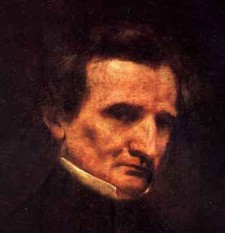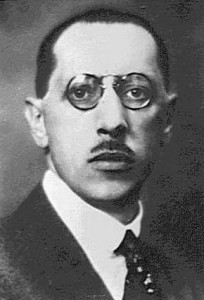I’ve been a little slow to get to CDs this past couple of days, so I took the chance to throw some recent purchases from eMusic onto the computer. After a couple of playlists of orchestral music, I realized that I had so far been pulling off music that I had played while in the orchestra at UC Berkeley under Prof. David Milnes. I got to play in the orchestra for three years. Unfortunately, this was the bulk of my orchestral playing experience. I have subbed a couple of times for orchestras here in Seattle, but these are VERY few and VERY far between. And I think it was playing orchestral repertoire that did more for my playing then just about anything else I ever did. My first concert had Berlioz’s ‘Symphonie Fantastique’ on it, and there are some seriously difficult bass parts in that piece. Or – at least they were for someone who wasn’t really that experience playing double bass. That first concert was one of the best studies in rhythm and intonation that I ever had.
So – the pieces I went ahead and transferred over tonight were the Berlioz, the SF Symphony recording of Mahler 1, the Scottish Chamber Orchestra recordings of the last four Mozart symphonies and Bernstein’s recording of ‘The Rite of Spring’. I played quite a bit more in orchestra, but these pieces were a few turning points for me. Obviously, the Berlioz being my first orchestral piece is pretty significant, but even then, while it was amazing to be part of a group so big, I still saw the orchestra as a requirement. Later that year though, we did an all Stravinsky concert that included the ‘Rite of Spring’ and the ‘Symphony of Psalms’. This was the concert that got me hooked. First – it was amazing music to play, and difficult. I hadn’t practiced so hard on a piece before ‘Rite of Spring’, and felt like I got back WAY more then I put into it. It was an amazing experience. The best part though was on the second night. The performance was as tight as I could imagine any performance could be. And with the last chord, the most beautiful sound happened. There was nothing, absolutely nothing for about 3 seconds. Then the sold-out crowd went crazy. It was the best feeling in a performance I’ve ever had, and I have wanted to create a piece of my own that could create that kind of silence after the piece was over. I’ve cheated… but I haven’t done it yet.
My second year of orchestra, I felt like I knew what I was doing and had more confidence in general. We read through Mozart #41 for an upcoming concert, and it was a blast. VERY hard, but very fun to play. i felt like it was going pretty well when one of my biggest lessons was taught to me. Two weeks before the concert, we learned that a reduced orchestra was going to be playing the Mozart, and I didn’t make the cut. I was crushed. I really wanted to play this piece, but the more I thought about it, the more I realized I was playing pretty sloppy. It was a good lesson (and one I got many times at Berkeley). Mostly – it didn’t matter in music how hard you tried. If someone was doing it better then you were, they were going to get the gig. There were no A’s for effort. You had to perform to perform.
So – by the time we got around to Mahler’s 1st, I was taking my chair (near the end of the row) in the double bass section very seriously. I rehearsed and practiced when I could, and was much more disciplined about it. By the time I left Berkeley, I was still no where near where I needed to be to focus on performance on the bass. But, I was much more serious about how to prepare for pieces then I ever would have been without that education. Thanks Prof. Milnes – I learned a lot.



